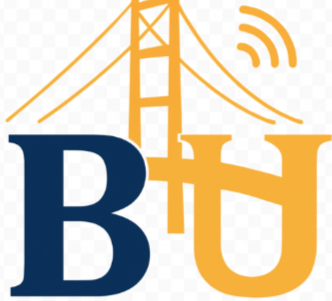Source: https://www.brighton-pride.org/
I’ve been thinking about what you mentioned regarding the challenge of capturing the essence of Brighton’s cultural vibrancy, especially around Pride and festival events that define the city’s heartbeat.
Over my 15 years leading teams in event marketing and cultural promotion, I’ve seen how these celebrations can either propel a calendar to success or fall flat without genuine connection and strategy.
Brighton’s festival scene is iconic, but the reality is that building awareness and engagement needs more than just listing dates; it requires understanding what makes these events resonate.
Embracing Brighton’s Pride Legacy
Brighton Pride is not just an event; it’s a movement born from decades of activism and community spirit. In 2018, many treated Pride as just another festival, but now the focus has shifted to inclusion and impact—both social and economic. From a practical standpoint, honoring Pride’s roots while evolving it for broader audiences has been a tightrope for organizers.
I once advised a client who underestimated community sentiment, and the backlash was immediate. What works is blending celebration with purpose, amplifying voices authentically, and creating spaces where everyone feels seen.
Festival Timing and Strategic Planning
One lesson the data keeps telling us is that the timing of events within the cultural calendar shapes attendance and media attention. Brighton’s festivals cluster in summer, making competition fierce. I’ve seen campaigns that failed because they launched too close to competing events.
The 80/20 rule applies here: 20% of your planning effort drives 80% of your results—typically the scheduling and targeted outreach. From my experience, starting the conversation months ahead with partners and influencers sets the stage for success and reduces last-minute chaos that can kill momentum.
Leveraging Local Businesses and Community
The bottom line is that Brighton’s cultural events thrive when local businesses and the community are genuinely involved, not just tagged in posts. I’ve worked with festival organizers who considered community outreach as an afterthought—it backfired because people can tell when it’s insincere. What I’ve learned is that co-creation forms the strongest foundation.
Ask yourself: who are your real stakeholders? When local cafes or shops become ambassadors, you tap into networks otherwise unreachable. Brighton’s energy is grassroots; harnessing that drives attendance and goodwill.
Managing Challenges of Scale and Sustainability
Scaling cultural events isn’t just about adding more dates or bigger lineups—it’s about sustainable growth that respects Brighton’s unique fabric. We once tried pushing a festival to include too many new elements at once, thinking bigger meant better.
The reality was stress on resources and diluted brand identity. What works is incremental scaling anchored in feedback loops—listening to attendees and partners. Smart companies during downturns focus on quality over quantity; Brighton’s festivals are a prime example of where slower growth builds lasting value.
Using Data to Refine Experience
In my experience, the biggest gap in festival planning is underutilizing data. The cultural calendar can fill with events, but without knowing who attends and why, it’s guesswork. People say culture eats strategy, but I’ve found culture and data fuel smarter decisions.
Using real-time analytics around ticket sales, social engagement, and even foot traffic gives practical insights that let you pivot quickly. For Brighton, embracing data doesn’t detract from the vibe—it sharpens it by aligning experience with audience desires.
Conclusion
The bottom line is that Brighton’s Pride and festival scene reflects much more than dates on a calendar—it represents resilience, community, and celebration threaded with lessons learned over time. From my experience, successful cultural events combine rooted authenticity, strategic timing, and data-driven decisions. The reality is complex—there is no one-size-fits-all solution—but the winning formula lies in balancing bold vision with practical execution grounded in local insight. If you’re managing Brighton’s cultural calendar, ask not just when and what, but also who and why.
FAQs
What makes Brighton Pride unique compared to other UK Pride events?
Brighton Pride’s uniqueness stems from its deep roots in activism and inclusion, making it more than a festival but a community movement that attracts diverse audiences year after year.
How do festival dates impact attendance in Brighton?
Festival timing is critical; scheduling too close to other events dilutes attendance and media focus, so strategic timing months ahead improves visibility and turnout.
Why should local businesses be involved in Brighton’s festivals?
Local businesses act as authentic ambassadors, expanding outreach organically and building community trust, which translates into stronger attendance and positive brand association.
What are key mistakes in scaling festivals?
Common pitfalls include overexpansion without audience feedback, straining resources, and losing the event’s core identity, leading to weakened engagement and backlash.
How can data improve festival planning?
Data from sales, social media, and foot traffic helps organizers understand audience preferences and behaviors, allowing for agile adjustments and better overall experiences.
What has changed in Brighton Pride’s approach since 2018?
Since 2018, the focus has shifted from just celebration to integrating social impact and inclusion, reflecting evolving community values and expectations.
How important is community involvement for Brighton’s festivals?
Community involvement is vital; genuine collaboration with residents and local groups fosters ownership, relevance, and sustainability of events.
What role does media coverage play in festival success?
Media coverage amplifies reach and shapes public perception, so early media engagement and storytelling are essential parts of effective event promotion.
How do economic cycles affect festival planning?
During downturns, cautious budgeting and emphasis on quality over quantity help maintain festival viability without sacrificing attendee experience.
Can digital tools replace traditional event planning methods?
Digital tools enhance insights and efficiency but cannot replace the nuanced understanding of local culture and face-to-face relationships crucial for success.

